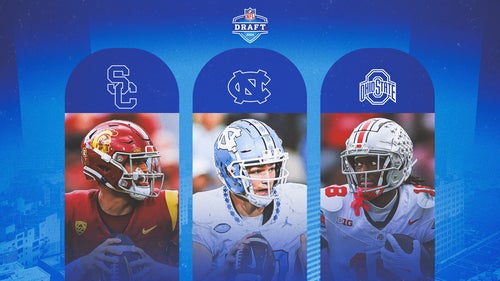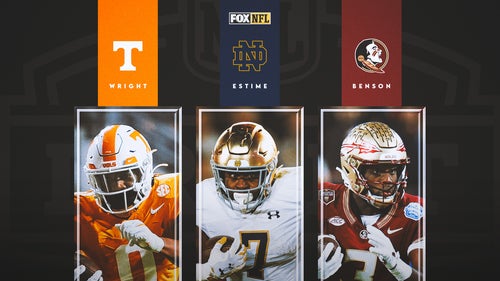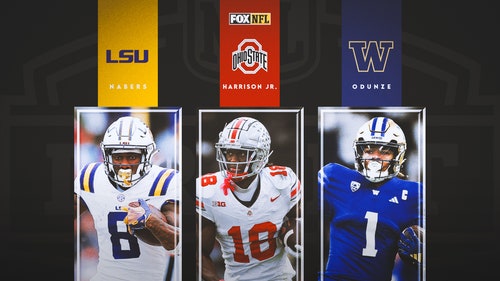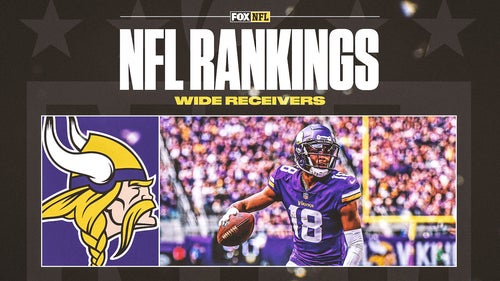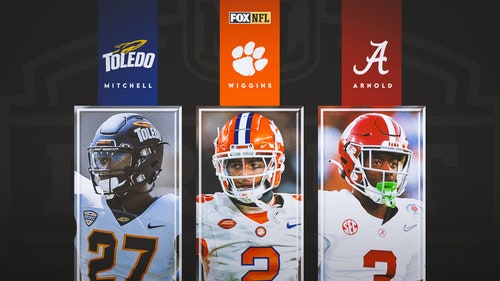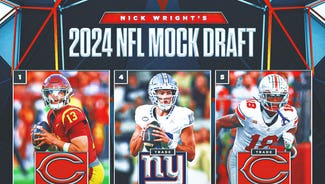
Talent Takes You Far

Behavior in recent weeks from star players such as Odell Beckham Jr. (tantrums on the field) and Dez Bryant (missed meetings off the field) has forced coaches and teammates to answer for them, bringing the “D word”—distraction—into their respective narratives. The Giants and Cowboys have been tolerant toward their star players, not only now but also in the past. And, as any parent knows, behavior without consequences is certain to continue.
Every NFL player has a talent/tolerance equation, with greater talent allowing for greater tolerance. Were Beckham and Bryant lesser-caliber players, they would be ex-players by now. Even a vital player who isn’t necessarily a star but still important to a scheme can rise above misbehavior. For example, the Eagles’ Nigel Bradham has been arrested twice in the past six months, for alleged assault and gun possession. While coaches and management were upset, his talent in the Eagles’ defensive scheme earned tolerance. At some point, however, no amount of talent will overcome repeated intolerant behavior. As an example, Greg Hardy has now transitioned to MMA after receiving no interest from NFL teams despite being a premiere talent at a high-value position.
I understand the difficulty of dealing with elite-yet-entitled athletes from both the team and agent side. At the Packers, I once had a talented veteran player who was constantly disrespectful to his position coach. Due to the player’s talent, we were not going to release him despite the insubordination, but I had to support the coach. I called for both to come to my office for an “intervention.” After an excruciating five minutes of silence, I was able to find some common ground when I asked each of them to share interests outside of football (playing cards). They never got along but the relationship improved to where they were civil to each other. Of course, were that a lesser player being insubordinate, he would have been long gone.
On the agent side, I empathize with the challenge of managing players who have been surrounded by enablers since a young age and are not used to hearing the word no. A difficult conversation, one that tells the player what he needs to hear rather than what he wants to hear, could mean the agent is soon to be an ex-agent.
Having said this, I do think the “distraction” narrative is overrated. Coaches and players are in a regimented schedule of team meetings, practices, treatments, film study, and team travel. Football is a very one-way business; coaches and players are good at compartmentalizing. “On to…” is not just a mantra of Bill Belichick’s; it is a league-wide mentality and necessity.

Norman Backstory
As I noted when the Panthers’ rescinded the franchise tag on Josh Norman, there must be quite a backstory here. Although general manager Dave Gettlemen mentioned Norman’s contract demands, saving money for the defensive line, and so forth, these were issues before the tag was applied. Indeed, Norman’s excessive contract demands are reason to use the tag, not rescind it. And as for the possibility that Norman was not going to sign the tag and sit out the season, please.
My sense is the Panthers’ decision revolves around the talent/tolerance equation, with the added factor of substantially increased compensation. Tolerating Norman, and all he brings with his talent and outspokenness, was one thing under an undervalued rookie contract. Doing so at many multiples of that, even for a year, was another thing. It appears that sometime after applying the franchise tag in February the Panthers decided they could no longer tolerate Norman, even for one more year before he took his contract demands elsewhere. Thus, they let a Pro Bowl cornerback walk out their door without getting anything in return.
As to second-guessing their decision in light of the team’s struggles this season—even after releasing Bene’ Benwikere, one of the cornerbacks who replaced Norman—don’t count on it. NFL management people are a stubborn bunch. Indeed, the Panthers may be smugly satisfied that Norman and his oversized personality and contract are now Washington’s concerns.
Marriage of Convenience
As with Norman, I have always sensed an untold backstory between the 49ers and the most-discussed player in the NFL this season, Colin Kaepernick—and it has nothing to do with his sitting/kneeling during the national anthem. Coaching and management has never embraced Kaepernick despite a perceived fit with Chip Kelly’s fast-paced offense. In fact, they allowed Kaepernick to meet with Broncos management this spring, usually a sign of an eventual separation. A trade did not happen, however, due more to Denver’s contract and/or trade compensation requirements.
After a mini-bye week following a Thursday night game, Kaepernick has become a more attractive option than the struggling Blaine Gabbert—albeit with a business twist. The 49ers and Kaepernick’s agents have reportedly adjusted Kaepernick’s contract to guarantee the $125,000 in per-game roster bonuses and add up to $1 million in playing-time incentives for this season.
BREER’S GAME PLAN: Can Kap Play? We’re About to Find Out
Much more importantly, the two sides have reportedly agreed to shorten the contract to allow Kaepernick an early exit, perhaps as soon as this coming offseason. At most, Kaepernick would be under contract one more season after this, assuming he does not void the remaining year (which I expect him to do). Further, injury protection for 2017 were Kaepernick to suffer a 2016 injury that would prevent him from passing a physical next April is now reportedly removed from the contract. The 49ers have allocated full injury risk away from the team to the player.
The 49ers had negotiated a pay-as-you-go contact with Kaepernick in 2014 that paid Kaepernick roughly $25 million over the past two years, with no security beyond that. The 49ers leveraged the fact that 1) Kaepernick was scheduled to make less than $1 million in the last year of his rookie contract, and 2) other agents were trying to steal Kaepernick as a client, although he admirably stayed loyal to his representatives. It was a perfect storm for a “win” in team-friendly contract. Now the 49ers are again leveraging the circumstances of Kaepernick’s desire to play and to move on from the team sooner than scheduled.
As you rightfully ask, “Why would Kaepernick do this?” The answer lies above. This relationship has seemed strained for a while, similar to a couple staying together for the kids (in this case, for the contract). For the next couple months, however, Kaepernick and the 49ers need each other. It is a marriage of convenience that may last through the fall or, at the most, through next year before an inevitable divorce. Desperate times call for uneasy alliances.
Question? Comment? Story idea? Let us know at talkback@themmqb.com
This article originally appeared on







































































































































